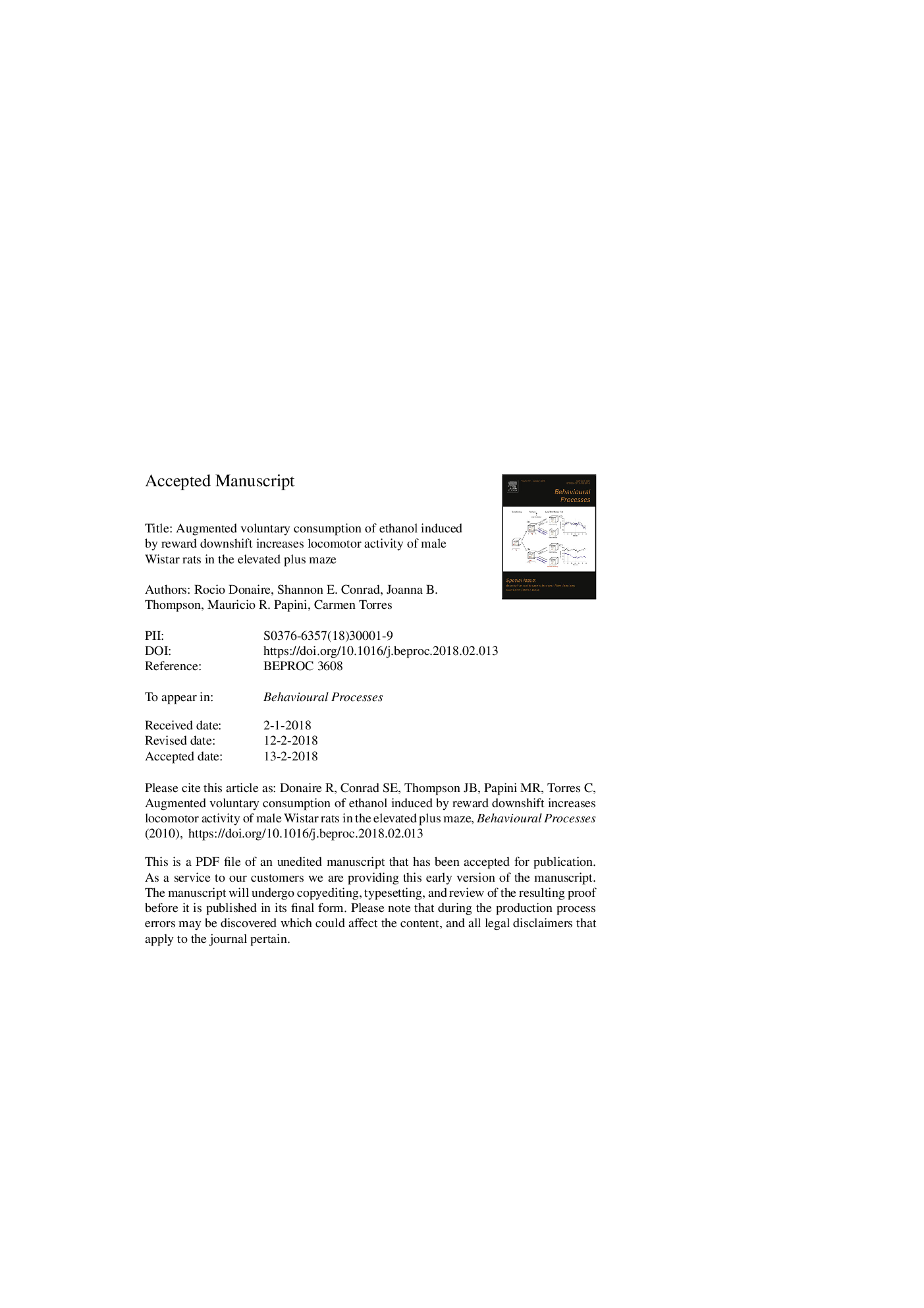ترجمه فارسی عنوان مقاله
مصرف داوطلبانه افزایشی اتانول ناشی از کاهش تعویض موجب افزایش فعالیت حرکتی موشهای نر نژاد ویستار در پیچ و خم بالا
عنوان انگلیسی
Augmented voluntary consumption of ethanol induced by reward downshift increases locomotor activity of male Wistar rats in the elevated plus maze
| کد مقاله | سال انتشار | تعداد صفحات مقاله انگلیسی |
|---|---|---|
| 112686 | 2018 | 30 صفحه PDF |
منبع

Publisher : Elsevier - Science Direct (الزویر - ساینس دایرکت)
Journal : Behavioural Processes, Volume 150, May 2018, Pages 59-65
ترجمه کلمات کلیدی
خود داروئی احساسی، اعتیاد، اتانول، پاداش پایین حرکت، تأثیر منفی، مزایای بالا،
کلمات کلیدی انگلیسی
Emotional self-medication; Addiction; Ethanol; Reward downshift; Negative affect; Elevated plus-maze;

